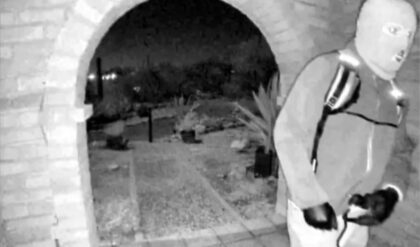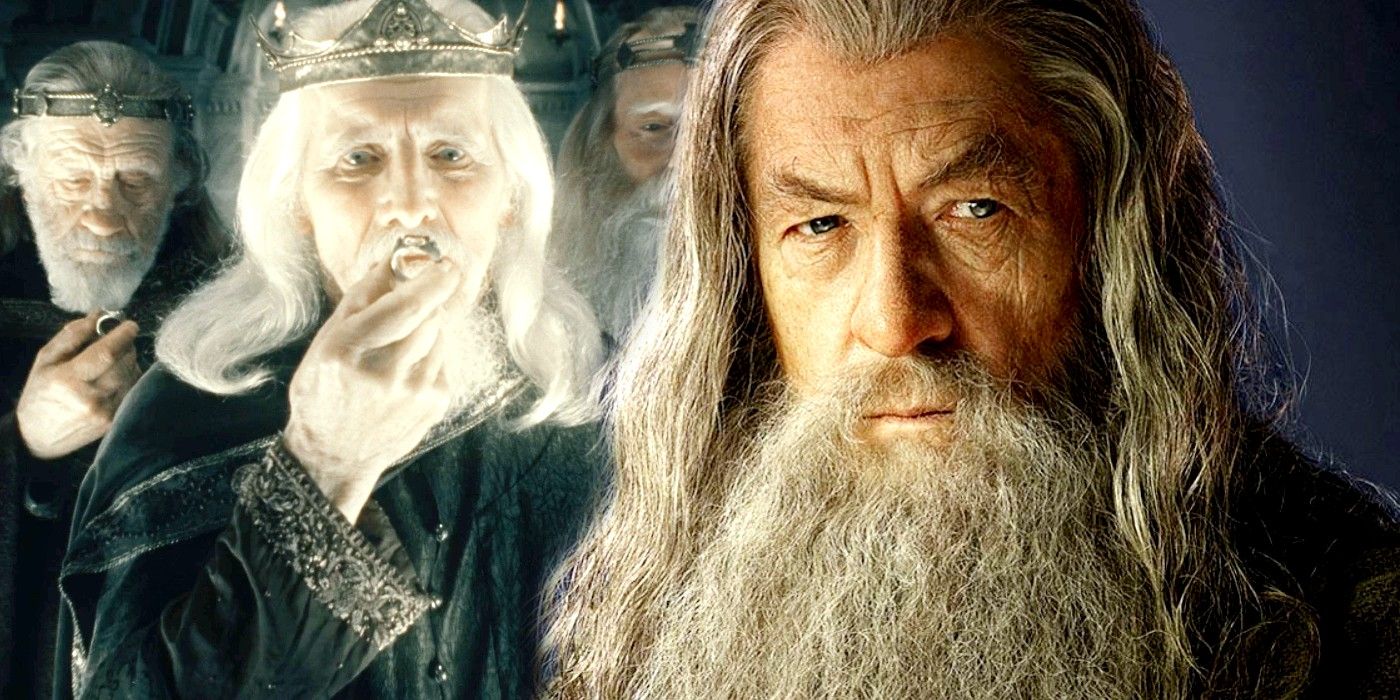
Sauron helped craft 20 Rings of Power, which he gifted to the various races of Middle-earth not from the kindness of his cold, black heart, but to dominate and control them. Sauron gave nine to men, seven to dwarves, the Elves had three, and the Dark Lord kept for himself the one ring to rule them all. Some of the Rings of Power are more important than others in the grand tapestry of Middle-earth, but all have history on the fingers of important figures.
The One Ring To Rule Them All
The Ring Sauron Kept For Himself
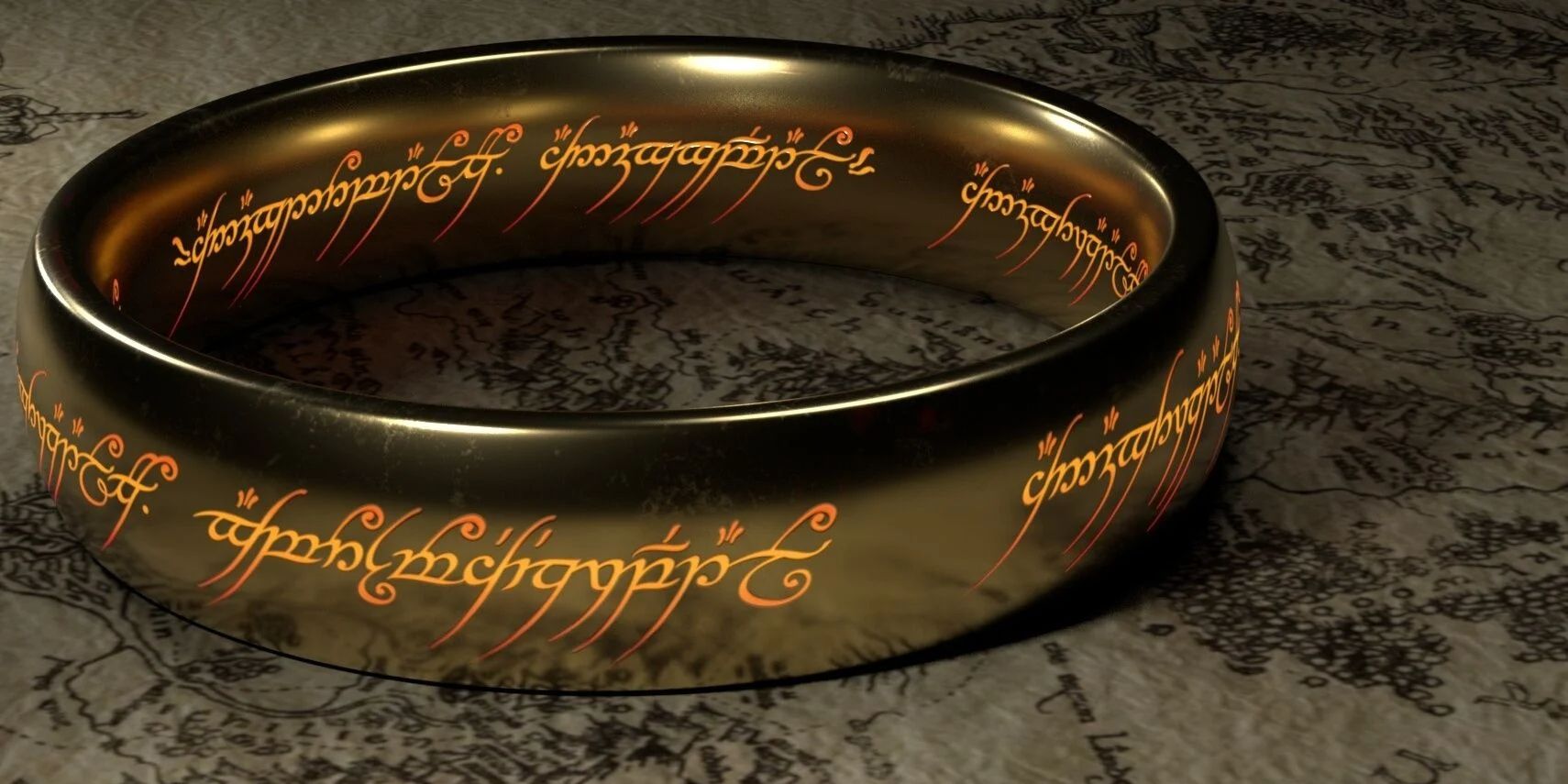
The most famous, most powerful, most precious Ring of Power is, of course, Sauron’s One Ring, forged in the fires of Mt. Doom as a master controller for the other 19. Crafting the Ring required Sauron to pour a large portion of his own power into the melting pot, creating a symbiotic bond between the item and its master. Sauron would never be truly killed while the Ring was still whole, but neither could Sauron wield his full Maia power without the Ring on his finger.
As recounted in The Lord of the Rings, Sauron used the One Ring to bring Middle-earth to his knees, until the weapon was cut from his hand by Isildur during the Last Alliance of Elves and Men. Isildur put up the feeblest of fights against the Ring’s temptation before resolving to keep it, but the next part of the Ring’s story is lesser known.
After many years of tragedy and struggle, Isildur realized Hugo Weaving’s Elrond probably had a point about the Ring being bad news, and set out to deliver it into the safe custody of the elven ruler himself. Isildur’s company was beset by orcs during the journey, and though the King managed to slip away using the Ring’s invisibility, it betrayed him by falling from its owner’s finger into the River Anduin, exposing Isildur to orc arrows.
Over 2000 years the Ring remained in its watery resting place until, as shown in Return of the King‘s movie adaptation, Sméagol the stoor found it while fishing. The Ring passed from Sméagol to Bilbo Baggins, from Bilbo to Frodo Baggins and, following a brief stint with Samwise Gamgee, into the fire from whence it came.
The Elves’ Three Rings Of Power
Narya, Nenya, And Vilya
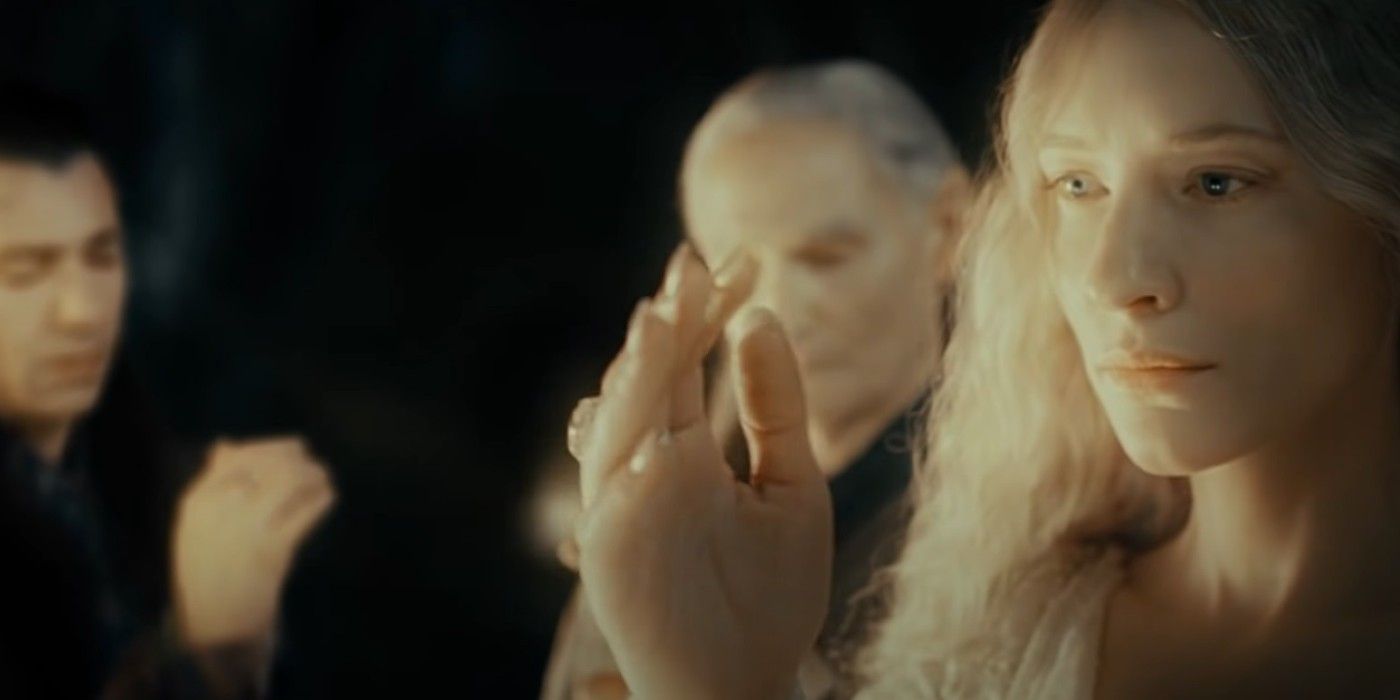
While the One Ring was the most powerful, there were 19 other Rings of Power in Middle-earth, and each of them was a considerable force in its own right. Whereas Sauron crafted the One Ring in secret from his Mordor stronghold, the other 19 were made openly by the elves — albeit not without a dark guiding hand. While Sauron gifted the Three Rings to the elves, they were crafted by Cerebrimbor alone. The three rings of power given to the elves were Narya (the Ring of Fire), Nenya (the Ring of Adamant), and Vilya (the Ring of Air).
Ring of Power
Other Names
Notable Owners
Abilities Granted
Narya
The Ring of Fire
Círdan, Gandalf
Protection from remote observation (such as through a Palantir), inspiration of those in its presence to resist tyranny, prolonged life, possible fire magic (such as Gandalf’s Flame of Anor).
Nenya
The Ring of Adamant
Galadriel
Protection from remote observation (such as through a Palantir). Nenya’s other powers are unclear, though it’s known Galadriel used it in some way to create Lothlórien.
Vilya
Vilya
Elrond
Protection from remote observation (such as through a Palantir), healing powers, possible water control (this may have been behind the torrent of water that stopped the Nazgul from pursuing Arwen and Frodo in The Fellowship of the Ring).
After the fall of Morgoth (Middle-earth’s original villain) at the end of the First Age, Sauron — Morgoth’s greatest lieutenant — spent 1500 years recovering his magical strength and military might, turning Mordor into a fortress of evil. As part of his grand plan to dominate all species, Sauron infiltrated the Elves of Eregion, adopting a “fair” disguise and renaming himself Annatar. Operating in the shadows and sowing dissent among the already-fractured elven houses, Sauron offered Eregion magical knowledge and pushed them toward crafting the Rings of Power.
Celebrimbor, the greatest of the smiths, duly obliged, and personally crafted a trio of powerful rings — Narya, Nenya and Vilya. Since Celebrimbor alone made them, the Elves’ Rings of Power didn’t fall directly under Sauron’s sway, and lacked the same corrupting qualities other Rings of Power imbued upon their unlucky owners. Nevertheless, all three still came under the influence of the Dark Lord’s One Ring.
Though Tolkien is ambiguous in describing their abilities, each elven Ring of Power comes with unique benefits. Narya specializes in flame magic, while also giving the bearer power to inspire others and resist weariness. Nenya could be used as a shield and ward against evil forces. Vilya, the strongest of the three, is suspected to possess the same gift, but with an added affinity for controlling water.
Narya and Vilya were both originally held by Gil-Galad, the Elves’ High Ruler who is briefly glimpsed during The Fellowship of the Ring‘s flashback battle. Gil-Galad passed Narya to Círdan the shipwright, one of the most ancient elves in Middle-earth, but when Círdan bore witness to Gandalf’s arrival, he thought the wizard would find better use for it. Gandalf carries Narya through the entire Lord of the Rings trilogy.
Vilya, meanwhile, Gil-Galad gave to Elrond long before the events of The Hobbit and The Lord of the Rings, and the third Ring, Nenya, is constantly held by Galadriel. After the Ruling Ring is destroyed by Frodo, all three become inert – nice to look at, but as useful in battle as Sam Gamgee’s prized marrow.
The Dwarves’ Seven Rings Of Power
Sauron’s Attempt To Subjugate The Seven Dwarf Clans Of Middle Earth
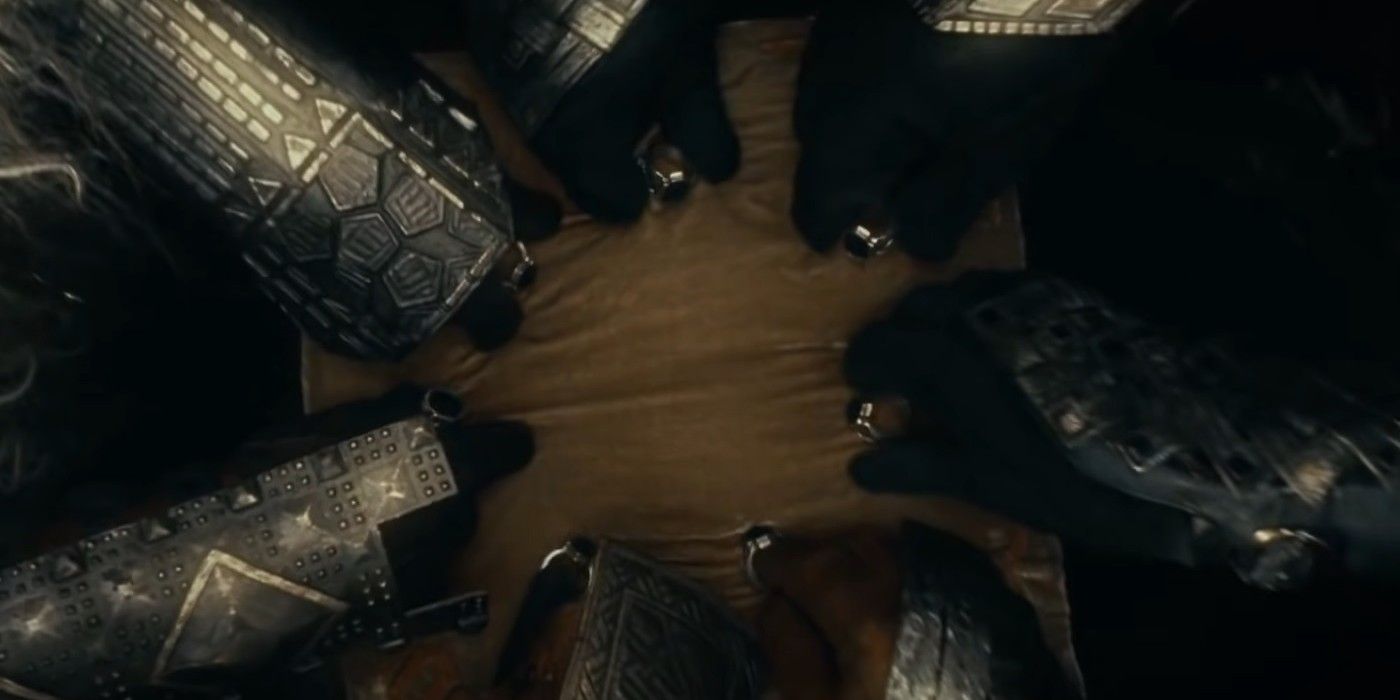
It’s well known that the Elves weren’t the only race in Middle-earth to receive Rings of Power, as seven were also given to the Dwarf lords. However, this wasn’t Sauron’s initial plan. Lord of the Rings‘ famous rhyme implies Sauron always intended to spread his Rings of Power among the various races of Middle-earth, but the pretty verse doesn’t tell the full story.
Sauron initially hoped all 19 Rings of Power would be used corrupting the Elves, but after forging the One Ring and putting his villainous scheme into motion, his targets quickly wised-up and took off their Rings. Sauron then fought to get them back, and though the Elves managed to hide the three strongest (Narya, Nenya and Vilya), the others were mostly reclaimed. Only at this point, thwarted by flowery forest folk, did the Dark Lord give seven Rings of Power to the Dwarves and nine to the kings of Men.
Dwarf Clan
Location In Middle-earth
Durin’s Folk
Khazad-dûm
Firebeards
The Blue Mountains
Broadbeams
The Blue Mountains
Ironfists
Unknown location in eastern Middle-earth where they dwelled with the Stiffbeards
Stiffbeards
Unknown location in eastern Middle-earth where they dwelled with the Ironfists
Blacklocks
Unknown location in eastern Middle-earth where they dwelled with the Stonefoots
Stonefoots
Unknown location in eastern Middle-earth where they dwelled with the Blacklocks
The Dwarves’ seven Rings of Power are the ones Tolkien wrote least about. As with the Elves, Sauron let the Dwarf-lords wear his gifts, then tried corrupting them through the One Ring. He failed again, this time because the Dwarves were too hardy and resolute to be controlled. Rather than falling under Sauron’s spell, dwarf ring-bearers accumulated great wealth, but became even more consumed by their greed, setting into motion the events of The Hobbit. Only one of the Seven is specified in Tolkien’s lore — the Ring of Thrór, which was gifted by Celebrimbor, not Sauron.
As the Dwarves’ Rings of Power attracted considerable trouble from dragons, it’s hardly surprising that four of the Seven were melted under the beasts’ flaming breath. Sauron managed to recapture the remaining three following his return to prominence, then boldly attempted bargaining with the Dwarves, offering the trio in exchange for their allegiance. The Dwarves, however, declined.
Mortal Men’s Nine Rings Of Power
The Method Sauron Used To Create The Nazgûl
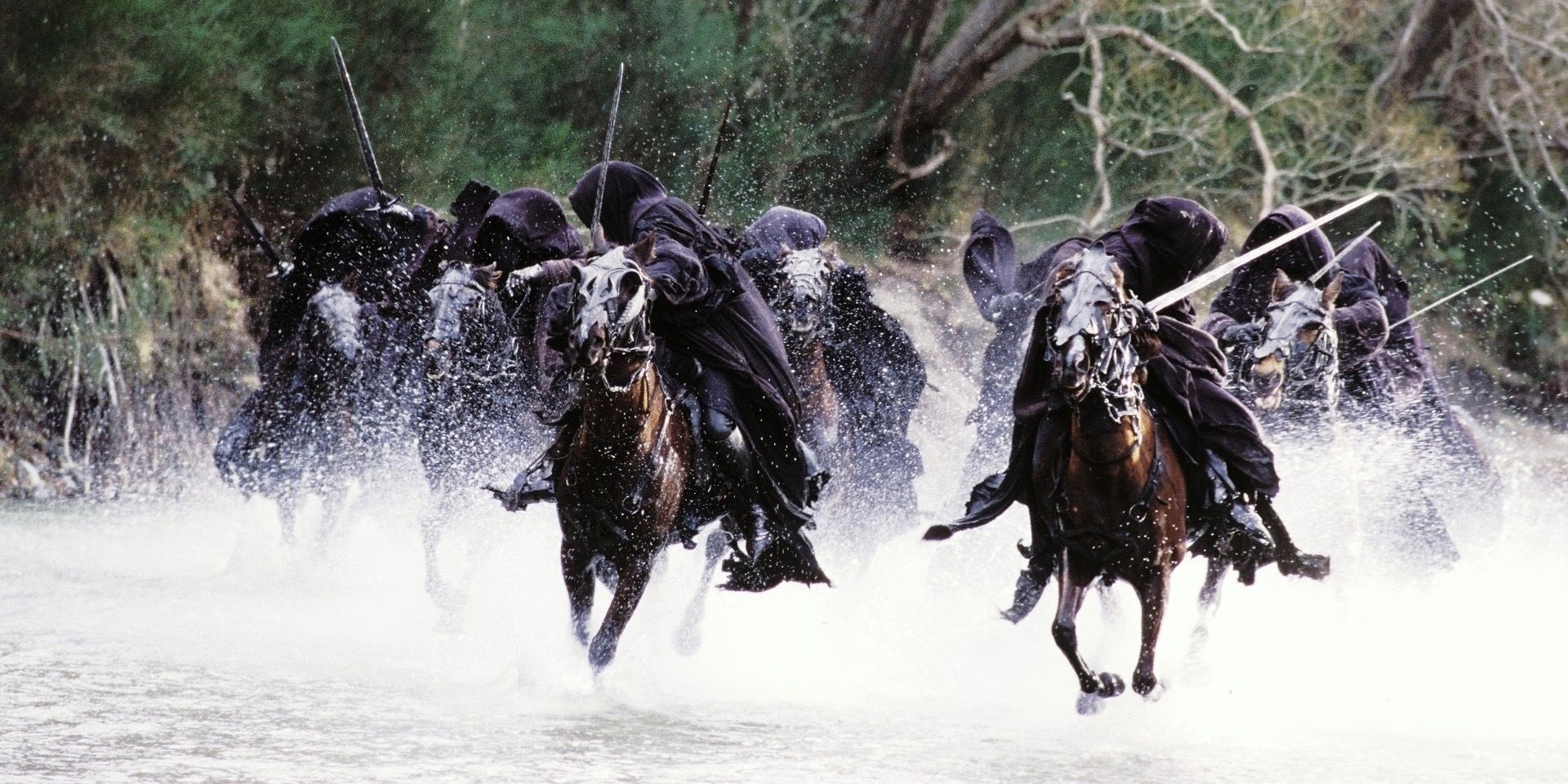
Of all the races that received Rings of Power, it was the race of Men that were the most corrupted of all the inhabitants of Middle-earth. It’s safe to say that Sauron’s gamble with the Rings of Power failed, though with the human kings of Middle-earth everything went according to his dark design — which is how the Nazgûl eventually came into being.
Sauron finally tasted success with the nine human kings he bestowed Rings of Power upon. Less magical than the Elves and less resistant than Dwarves, Sauron’s chosen Men-folk lapped up his tempting gifts, succumbing fully to the One Ring’s invisible tendrils. As the Dark Lord promised, the nine kings acquired power, agelessness and riches — though this came with a heavy price.
The Nine humans given Rings of Power would’ve known Sauron’s price was their tether to the mortal realm if only they weren’t blinded by their greed. The kings gradually slipped into a nether-plane, existing only as ghostly wraiths subservient to the will of Sauron, and dependent on him for their power. These phantom slaves became known as the Nazgûl, or Ringwraiths, and continued to obey their master until being vanquished for good.
Little is known about the identities of the Nazgûl, with only the Witch-king of Angmar and Khamûl the Easterling named by Tolkien. The fate of the nine Rings of Power reserved for Men is also somewhat mysterious. The pieces themselves were never found, so either remained with Sauron in Mordor, or stayed with the physical bodies of their respective kings — wherever those were kept. The shroud of mystery surrounding so many of Sauron’s Rings of Power makes the topic ripe for exploration in The Lord of the Rings: The Rings of Power.


